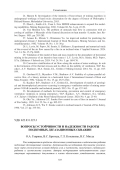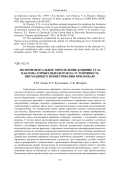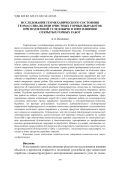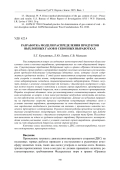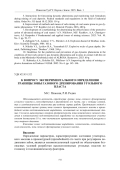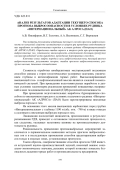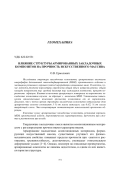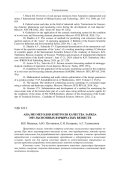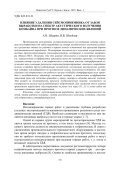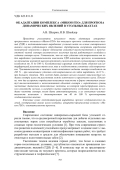Современные угледобывающие районы юга Кузбасса представлены промышленными комплексами предприятий как открытой, так и подземной геотехнологии, осваивающими лицензионные участки в непосредственной близости. В некоторых случаях открытые и подземные горные выработки расположены друг под другом. Изменение естественного рельефа поверхности, формирование открытых горных выработок, породных отвалов, применение массовых взрывов на открытых горных работах приводит к изменению геомеханического, геодинамического и сейсмического состояния геомассива вблизи горных работ. Актуальной научно-практической проблемой является необходимость повышения безопасности подземных горных работ предприятий подземной угледобычи с учетом сочетания ряда негативных факторов, влияющих на изменение параметров геомеханического и геодинамического состояния массива горных пород в окрестности системы подземных очистных и подготовительных выработок при подготовке и отработке выемочных столбов в под в непосредственной близости от объектов открытых горных работ. При ведении открытых горных работ вскрышние породы складируются в отвалы, которые изменяют состояние геомассива за счет его пригрузки. В современной горной практике такая пригрузка геомассива не учитывается при проведении подготовительных горных выработок под участками открытых горных работ. В работе предложен методический подход, позволяющий оценить влияние горных работ по добыче угля открытым способом (открытые горные выработки, сформированные отвалы вскрышных пород) без учета взрывных работ на геомеханическое состояние подземных горных выработок, пройденных в непосредственной близости. В работе, на примере результатов численного математического моделирования напряженно-деформируемого состояния геомассива, проанализировано геомеханическое состояние подземных горных выработок в условиях пригрузки сформированного породного отвала на поверхности. Установлено, что для условий действующей системы подготовительных выработок, расположенных под породним отвалом разреза на глубине более 600 м при отсутствии технологических взрывов существенно не снижается уровень промышленной безопасности и дополнительные мероприятия по профилактике опасных производственных ситуаций не требуется. Однако, в условиях уменьшения глубины ведения горных работ под разрезом прогнозируется существенное снижение уровня промышленной безопасности в связи с изменением геомеханических параметров геомассива в зонах пригрузки породных отвалов.
